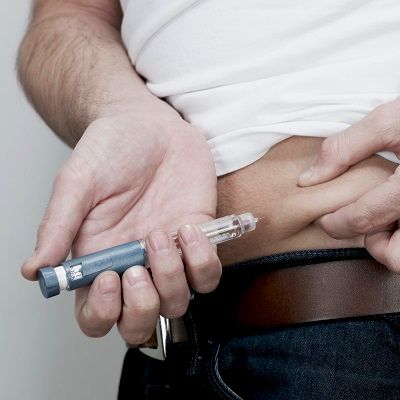When it comes to weight loss treatments, the Best Weight loss Injections in Oman have gained significant attention. These injections offer a promising solution for individuals struggling to shed excess weight, but they are not a standalone fix. Follow-up care is essential to maximize results, maintain motivation, and ensure overall health. This article explores the various aspects of weight loss injections and the critical role follow-up care plays in their effectiveness.

Understanding Weight Loss Injections
What Are Weight Loss Injections?
Weight loss injections typically include medications like Semaglutide and Liraglutide, which are designed to help reduce appetite, increase satiety, and promote weight loss. These injections can be an effective adjunct to lifestyle changes such as diet and exercise. In Oman, the availability of the best weight loss injections allows individuals to access cutting-edge treatments tailored to their needs.
How Do They Work?
These injections work by mimicking hormones that regulate appetite and glucose metabolism. They signal the brain to reduce hunger and help stabilize blood sugar levels, making it easier for individuals to adhere to their weight loss plans. However, understanding their mechanism is just the first step; proper administration and follow-up care are vital for achieving long-term success.
The Role of Follow-Up Care
Why Follow-Up Care Matters
After initiating a weight loss injection regimen, follow-up care becomes crucial for several reasons:
- Monitoring Progress: Regular check-ins with healthcare providers help track weight loss progress, ensuring that the treatment is effective and making necessary adjustments.
- Managing Side Effects: Weight loss injections can have side effects, including nausea, diarrhea, or fatigue. Follow-up appointments provide an opportunity to address these issues and modify treatment if needed.
- Encouraging Accountability: Consistent follow-up fosters accountability, encouraging individuals to stick to their weight loss goals and lifestyle changes.
Best Practices for Follow-Up Care
- Regular Appointments: Schedule follow-up visits as recommended by your healthcare provider. This could range from every few weeks to monthly, depending on individual needs.
- Track Your Journey: Maintain a diary of your food intake, exercise, and any side effects experienced. This documentation will be invaluable during follow-up visits.
- Open Communication: Be honest with your healthcare provider about your experiences, including any struggles or successes you encounter. This dialogue can lead to more personalized care.
Incorporating Lifestyle Changes
The Importance of Diet and Exercise
While the best weight loss injections in Oman can facilitate weight loss, they are most effective when combined with a healthy diet and regular exercise. Follow-up care should also emphasize these lifestyle changes.
Nutritional Guidance
Engaging a nutritionist or dietitian can enhance your dietary choices. Focus on:
- Balanced Meals: Incorporate a variety of fruits, vegetables, whole grains, and lean proteins into your diet.
- Portion Control: Learn about portion sizes and how to listen to your body's hunger cues.
- Hydration: Drinking plenty of water can help curb hunger and support overall health.
Exercise Recommendations
Developing a regular exercise routine is vital for sustained weight loss. Consider:
- Aerobic Activities: Aim for at least 150 minutes of moderate aerobic activity each week, such as walking, cycling, or swimming.
- Strength Training: Incorporate strength training exercises at least two days a week to build muscle mass and increase metabolism.
Psychological Support
Addressing Emotional Eating
Many individuals struggle with emotional eating, which can sabotage weight loss efforts. Follow-up care should include strategies to manage emotional triggers, such as:
- Cognitive Behavioral Therapy (CBT): This therapeutic approach can help identify and change negative thought patterns related to food and body image.
- Support Groups: Joining a weight loss support group can provide encouragement and motivation from peers facing similar challenges.
Building a Positive Mindset
Maintaining a positive mindset is crucial during the weight loss journey. Some strategies include:
- Setting Realistic Goals: Establish achievable short-term goals to celebrate small victories along the way.
- Practicing Self-Compassion: Recognize that weight loss is a process, and setbacks are a normal part of the journey.
Monitoring Health Metrics
Importance of Regular Health Check-Ups
In addition to monitoring weight loss, follow-up care should also focus on overall health metrics. Regular health check-ups can help track:
- Blood Pressure and Cholesterol Levels: These metrics provide insight into cardiovascular health and help identify any potential issues early on.
- Blood Sugar Levels: Regular monitoring can help prevent complications related to diabetes and metabolic syndrome.
Adjusting Treatment as Needed
As weight loss progresses or health conditions change, adjustments to the treatment plan may be necessary. Your healthcare provider may recommend:
- Changing Medication Dosage: Depending on your response to the injections and weight loss progress, your provider may adjust the dosage for optimal results.
- Switching Treatments: If the current injection isn't effective, your provider may suggest trying a different medication or treatment method.
Conclusion: Embracing a Holistic Approach
Weight loss injections can be an effective tool in achieving weight loss goals, particularly when paired with diligent follow-up care. The best weight loss injections in Oman can provide individuals with the necessary support to embark on their weight loss journey, but the true key to success lies in a holistic approach that includes lifestyle changes, emotional support, and ongoing health monitoring. Embrace this comprehensive strategy to not only achieve weight loss but also maintain a healthier and happier lifestyle in the long run.
